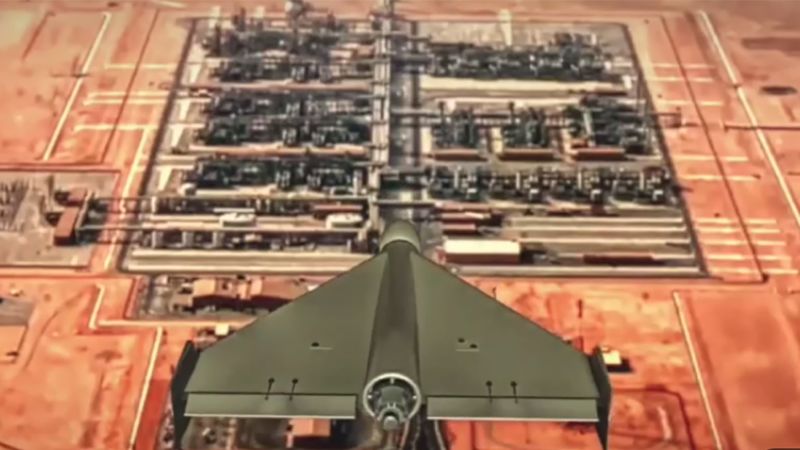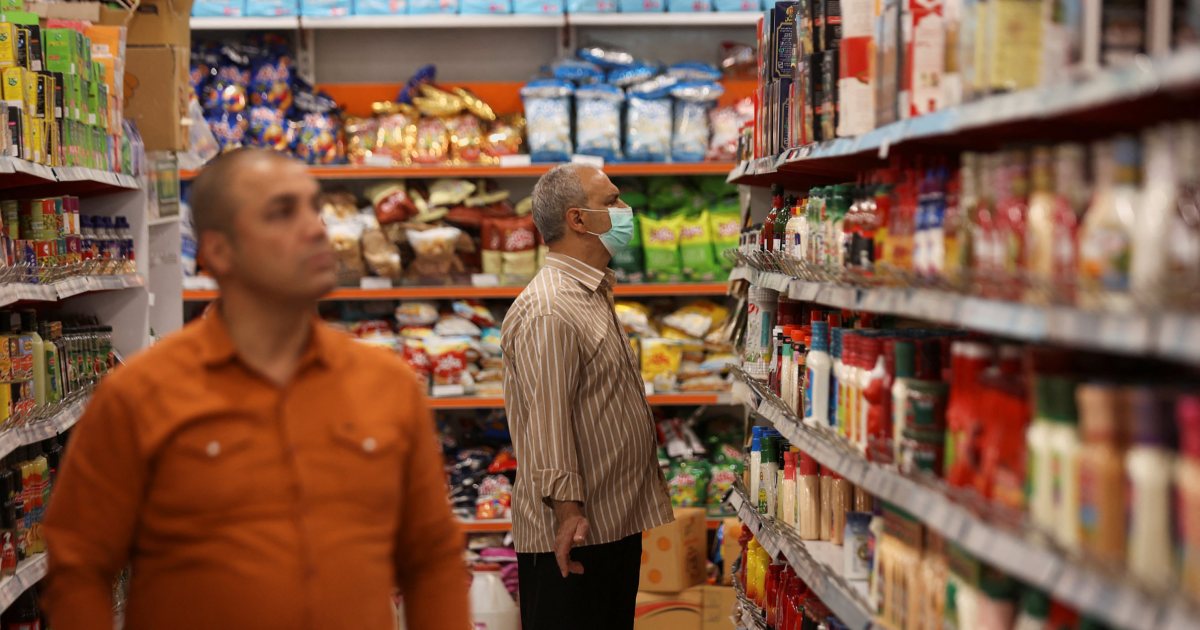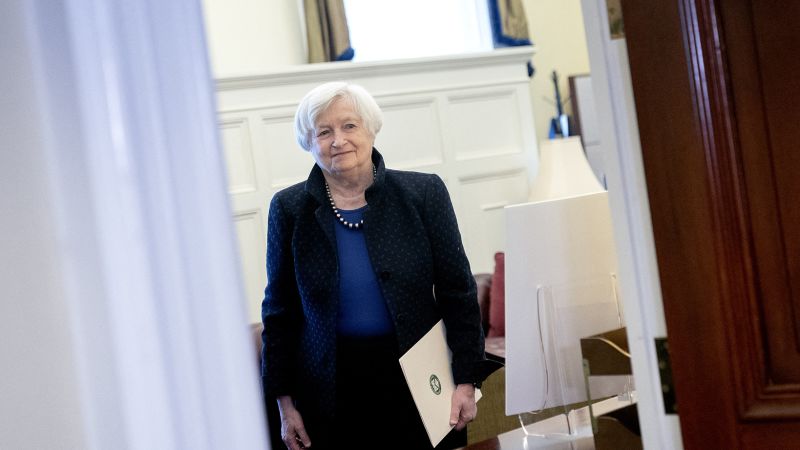Cartoons and Quranic verses form the latest Saudi-Iran battleground | CNN
Editor’s Note: A version of this story first appeared in CNN’s Meanwhile in the Middle East newsletter, a three-times-a-week look inside the region’s biggest stories. Sign up here.
Abu Dhabi
CNN
—
The animated simulation shows a fleet of drones approaching an oil facility belonging to Aramco, Saudi Arabia’s state oil company. Air raid sirens are heard with ominous background music as the drones aim at the facility, apparently ready to strike.
The one-minute video ends with a telling verse from the Quran about God repelling the invaders of Mecca by having them pelted with stones from the sky. “And He sent upon them birds, in flocks,” it says.
The aircraft have a strong resemblance to Iran’s Shahid suicide drones, which have been in the headlines lately for wreaking havoc in Ukraine.
This footage was posted on a Telegram channel sympathetic to Iran’s elite Islamic Revolutionary Guards Corps (IRGC) on Wednesday, shortly after US and Saudi officials sounded alarms about an imminent Iranian attack on energy infrastructure in the Middle East, particularly in Saudi Arabia.
Iran’s foreign ministry hit back, calling the reports baseless attempts by “Western and Zionist circles” aimed at “creating a negative atmosphere against the Islamic Republic.”
But just last month, IRGC chief Hossein Salami warned Saudi Arabia of “consequences” twice in one week for its alleged support for Israel and the nationwide protests that have gripped Iran. Tehran’s Yemeni proxy, the Houthi group, also threatened to strike Saudi Arabia and the United Arab Emirates as a truce in Yemen expired in October. US Special Envoy for Yemen Tim Lenderking traveled to the UAE and Saudi Arabia this week to try to “renew and expand” that truce, the State Department said Thursday.
For Iran, attacking Saudi Arabia – or even threatening to do so – is the closest it can come to hitting America without actually hitting America, and risking catastrophic consequences. This was demonstrated in 2019, when an audacious predawn attack on Saudi oil facilities that the United States blamed on Iran was met with a largely muffled response by the Trump White House, arguably the most pro-Saudi US administration ever. Tehran’s calculations likely take that into account. Iran denied involvement then, and the attack was claimed by the Houthis.
Iran is also proving to be a thorn in the US’s side by providing missiles and drones to foster Russia’s Ukraine invasion.
If Iran does indeed want to cause damage to both Saudi Arabia and the Biden administration, it likely considers the time to be ripe now, given the deep fissure in Saudi-American relations.
But its window to do so is probably small. When Aramco was hit in 2019, half of Saudi Arabia’s oil supply was knocked off the market, sending global crude prices soaring by 19.5%, the biggest jump on record. A similar scenario ahead of Tuesday’s midterm elections would likely have a detrimental impact on the Democratic Party’s prospects in the vote as President Joe Biden struggles to battle inflation at home.
The bellicose battle of cartoons and Quranic verses between Saudi Arabia and Iran isn’t new. In late 2017, an animation surfaced on YouTube from a channel called Saudi Strike Force showing the kingdom’s forces invading Iran and capturing a quivering man, eerily similar to Qasem Soleimani, the head of the IRGC’s Qods Force who was killed by the US in a January 2020 drone strike. In the footage, Iranians in Tehran are shown celebrating Saudi Crown Prince Mohammed bin Salman (also known as MBS) as their liberator.
That video started with a quote by MBS saying Saudi Arabia will “bring the fight to Iran” and it also ended with a Quranic verse – this one about a plea from Abraham to God: “O, my Lord! Make this city (Mecca) one of peace and security and keep me and my sons away from worshipping idols.”
But that was a different era. Now, the Saudi-Iranian proxy war in Yemen and regionally has calmed, and Riyadh has actually been talking to Tehran, perhaps in an effort to prevent the heated rhetoric that culminated in the 2019 attack. The two countries held their sixth round of talks in April and both parties have cited progress.
The messages from Iran have been mixed. Last month, while the IRGC was threatening Riyadh, the Iranian Supreme Leader’s adviser called for Saudi Arabia and Iran to reopen their embassies in each other’s capitals. “We are neighbors of Saudi Arabia and we must coexist,” said Ali Akbar Velayati.
An Iranian attack on Saudi Arabia would serve as a convenient distraction from public civil rights protests at home due to the damage it could cause to its regional nemesis and to the global economy. This time, however, given Iran’s very public threats to Saudi Arabia, Tehran may not have the option of plausible deniability as it did in 2019.
But the saber-rattling may also just be intended to keep the Saudis and Americans on their toes, the oil markets jittery, and prices high enough to hurt wallets and politics.
Iranian President Ebrahim Raisi hit back at his US counterpart Biden for voicing his support for the protest movement in the country and promising to “free Iran.”
“A few hours ago, I was informed that the President of America absentmindedly [said] ‘We will soon free Iran.’ We were freed 43-years-ago, and Iran will never be your milking cow,” Raisi said during a televised address on Friday.
Speaking at a campaign event in California Thursday ahead of the midterm elections, Biden seemed to imply his administration would support Iran’s nationwide uprising, telling the crowd, “don’t worry, we’re going to free Iran, they’re going to free themselves pretty soon.”
Here’s the latest:
- Over 14,000 people may have been arrested in Iran in the last six weeks, Javaid Rehman, the UN’s Special Rapporteur on human rights in Iran told the UN Security Council on Wednesday.
- The Norway-based rights group Iran Human Rights (IHR) said in a report that dozens of protesters are facing charges carrying the death penalty, adding that the demonstrators are being charged by the judiciary with “enmity against God” and “corruption on earth,” which is tantamount to a death sentence in Iran.
- A member of Iran’s volunteer paramilitary militia, the Basij, was killed during protests on the outskirts of Karaj, north central Iran on Thursday, according to the country’s official state news agency IRNA.
- US Vice President Kamala Harris on Wednesday announced that the US will work to remove Iran from the UN Commission on the Status of Women.
Pope Francis speaks out against death penalty in Bahrain
The pontiff spoke against the death penalty on Thursday at the start of a trip to Bahrain where the opposition has accused the government of overseeing human rights abuses and families of death row inmates had sought help from the pontiff, Reuters reported.
- Background: The visit has thrust the pope into the Sunni-Shiite rights divide in Bahrain, which crushed a pro-democracy uprising in 2011. Referring to Bahrain’s constitution, the pope said commitments should constantly be put into practice so that “religious freedom will be complete,” equal dignity and equal opportunities “concretely recognized for each group,” and that no forms of discrimination exist nor human rights “violated.” “I think in the first place of the right to life, of the need to guarantee that right always, including for those being punished, whose lives should not be taken,” he added.
- Why it matters: The pope’s visit has drawn attention to tensions between the government and the Shiite community that led sizeable pro-democracy protests in the 2011 “Arab Spring,” which Bahrain quashed with the help of its Gulf allies. King Hamad, in his speech, said his country protected the freedom of all faiths to “perform their rituals and establish their places of worship.” Families of death row inmates in Bahrain had appealed to the Argentine-born pope to speak out against capital punishment and defend political prisoners during his trip.
China-GCC Free Trade Agreement nears
Talks for a free trade agreement (FTA) between China and the Gulf Cooperation Council (GCC) have entered their final stage, according to the UAE’s state news agency WAM, citing a Chinese diplomat.
- Background: Zhang Yiming, Chinese ambassador to the UAE, said all sides of the FTA have agreed on most issues. He added that Beijing “has become the UAE’s largest non-oil trading partner in the world, and the UAE remained China’s second-largest trading partner and the largest export market in the Arab region.” Bilateral trade between the state and China exceeded $64 billion during the first eight months of 2022, he said, an almost 28% increase compared to the same period last year.
- Why it matters: China is one of the Gulf states’ most important trading partners. The Asian giant and its Gulf partners have strengthened ties in recent years, especially as US-Gulf relations have become increasingly strained.
Erdogan rival is first target of Turkish media law, opposition party says
Turkey’s main opposition party has said its leader is the first target of a media “disinformation” law after police asked prosecutors to open an investigation into comments he made blaming authorities for a drug “epidemic,” Reuters reported. On Monday, Republican People’s Party (CHP) leader Kemal Kilicdaroglu said on Twitter that Ankara had not questioned the origin of money brought into the country and this “dirty money” from drug smuggling had been used to finance Turkey’s current account deficit. The police and interior ministry declined to comment.
- Background: Last month parliament passed a law sought by President Recep Tayyip Erdogan’s ruling party that allows judges to impose jail sentences of up to three years on anyone who spreads false or misleading information.
- Why it matters: Critics say what can be deemed false or misleading under the law is vaguely defined and open to abuse, and the legislation has raised deep concerns over free speech ahead of next year’s elections in Turkey, and questions over who might be prosecuted. Kilicdaroglu is seen by many as the most likely candidate to challenge Erdogan in a presidential election set for next June.
CNN’s Hadas Gold speaks to Becky Anderson about Israel’s election, the country’s surge to the right and Netanyahu’s comeback. Watch the report here:
A pre-Islamic Christian monastery was discovered in the emirate of Umm Al Quwain in the UAE on Thursday.
The monastery included a church, refectory, cisterns and cells for the monks, according to a statement by state news agency WAM.
Radiocarbon dating suggests the monastery belonged to a community that flourished in the emirate between the late sixth to mid-eighth centuries, into the Islamic era.
Zaki Nusseibeh, a cultural adviser to the UAE president, described it as one of the most important archaeological discoveries in the region, according to WAM.
This is the latest in a series of archeological sites discovered in the UAE in recent years.
In February, the UAE’s oldest buildings were discovered on the island of Ghagha, west of the city of Abu Dhabi.
The buildings dated discovered then went back at least 8,500 years according to Abu Dhabi’s Department of Culture and Tourism – more than 500 years older than the previous record-breaking discovery.
By Mohammed Abdelbary




